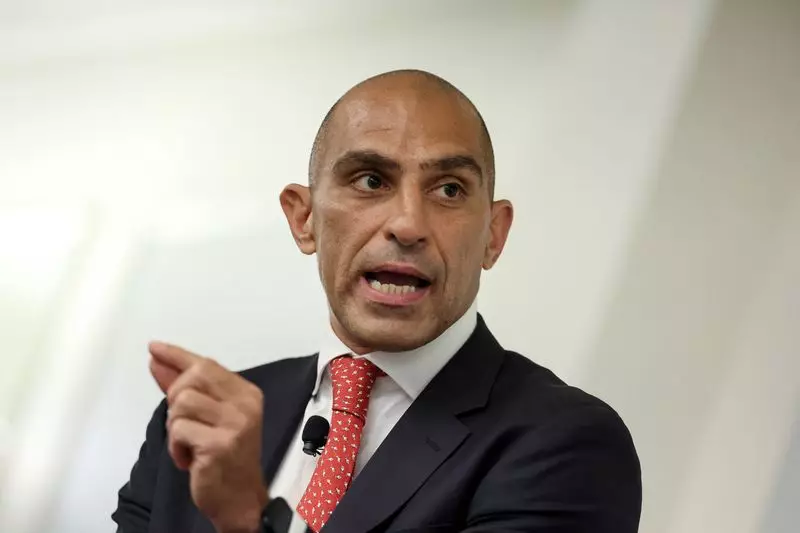The U.S. Commodity Futures Trading Commission (CFTC) is poised for a significant leadership transition as its current chair, Rostin Behnam, confirms his departure with the upcoming inauguration of President-elect Donald Trump on January 20. This shift not only reflects the broader changes expected in federal policy but also opens the door for the incoming administration to implement its agenda, particularly concerning cryptocurrency regulations. As the agency traditionally regarded as secondary in the hierarchy of financial oversight prepares for a shake-up, the implications for the crypto market and related financial practices may be profound.
Behnam’s leadership since 2017, which culminated in his appointment as chair by President Biden in 2021, has seen the CFTC navigate complex challenges in an evolving financial landscape. While he took a comparatively moderate stance on cryptocurrency regulation, the anticipated changes under Trump’s administration could propel the CFTC into a more central role in shaping policies that favor the burgeoning digital asset industry.
Historically, the CFTC’s focus has been primarily on commodity derivatives markets, operating with regulatory powers that often seemed dwarfed by those of the Securities and Exchange Commission (SEC). However, Behnam’s acknowledgment of the need for a more robust regulatory framework for cryptocurrency indicates a shifting perspective within the Commission. Despite being seen as lenient compared to the hardline approach of SEC Chair Gary Gensler, Behnam’s CFTC did not shy away from initiating action against key players in the crypto space, underscoring the agency’s commitment to maintaining oversight.
The future of the CFTC under a Trump administration suggests an environment ripe for transformation. Sources indicate that Trump is considering appointing a Republican as the agency’s acting chair, likely among the existing commissioners, including Summer Mersinger or Caroline Pham. Both are positioned to embrace the administration’s pro-crypto platform, paving the way for potentially sweeping reforms. As the landscape of digital assets continues to evolve rapidly, the CFTC is set to reshape its regulatory priorities to tackle the nuances of curreny, derivatives, and innovative trading practices.
Amidst these transitions, challenges abound, particularly given Behnam’s candid recognition of regulatory deficiencies in the crypto space. He pointed out that significant portions of the digital asset environment remain without comprehensive oversight, a gap that the CFTC must urgently address. The repercussions of an unregulated sector are manifold, not only affecting investor protection but also heightening risks associated with financial stability and fraud.
Moreover, the recent collapse of the FTX crypto exchange and subsequent legal actions against prominent figures, including Binance’s founder Changpeng Zhao, highlight the pressing need for tighter controls and clear guidelines for marketplace participants. Behnam’s comments regarding the CFTC’s potential role as a “spot regulator” for digital commodities hint at an evolving regulatory philosophy aimed at ensuring that the agency can effectively oversee this dynamic sector without stifling innovation.
The Broader Impacts of Regulatory Changes
In light of the shifting political landscape, the likely appointment of Paul Atkins, a Washington lawyer known for his favorable views on the cryptocurrency sector, as the next SEC chief may further enhance the momentum towards a crypto-friendly regulatory framework. This potential partnership between the CFTC and SEC, if conducted effectively, could foster an environment that balances necessary oversight with the flexibility required for industry growth.
Nevertheless, concerns remain. Behnam’s reflections on the blurred lines between legal and illegal activities in emerging markets, particularly regarding election-related betting, underscore the complex regulatory environment ahead. As technologies evolve and retail interest swells, the challenge of delineating legal boundaries in new markets becomes ever more critical.
As the CFTC prepares for a leadership overhaul under a Trump administration, the ramifications for cryptocurrency regulation are extensive. The commission stands at a crossroads, with the opportunity to redefine its role in an industry that has become central to contemporary financial discourse. The commitment to filling regulatory gaps and ensuring consumer protection while fostering an environment conducive to innovation will be key to navigating this complex landscape in the years to come.

